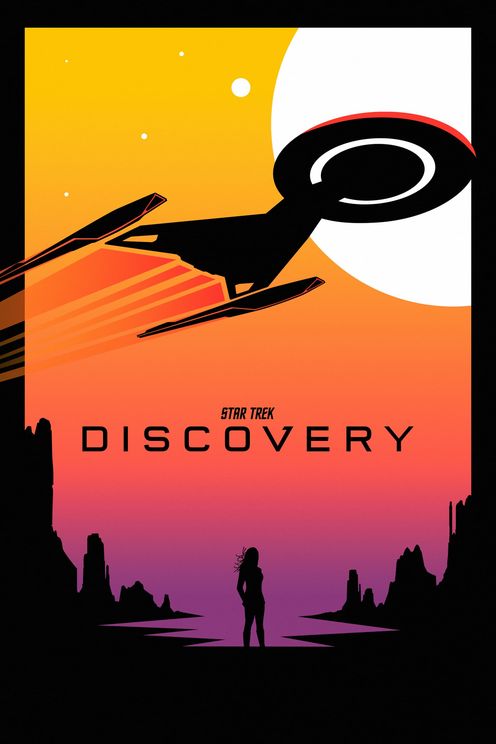Farewell Star Trek: Discovery

7 years, 5 seasons, and 65 episodes later, Star Trek: Discovery is over.
As far as I’m concerned, an incredibly important show in the Star Trek universe in particular but also for TV in general. But let’s start at the beginning, or rather the beginning of the end.
Enterprise
Starting in 2001, 4 seasons of Star Trek: Enterprise were released over the next 5 years, mostly receiving lukewarm reviews. The premise is quite interesting though, following the first Enterprise starship in a pre-Federation galaxy and a not yet technologically advanced Earth compared to what we are used to from other Star Trek installments.
Unfortunately, the show is also firmly a product of its time. Depicting an outdated sense of masculinity and catering for the male gaze. Enterprise has its fun moments but we have to acknowledge the problematic aspects.
In 2005 the show ended and with it a non-stop 20 year run of Star Trek shows and movies, starting in 1986 with The Voyage Home (who doesn’t love a wild time traveling story?) and a year later The Next Generation.
The Kurtzman era
A modernization of Star Trek was surely needed to appeal to a new and younger audience. Enter Alex Kurtzman, who together with J. J. Abrams created a reboot in 2009, also known as the Kelvin timeline, an alternate universe spin on The Original Series events with a new cast.
The three movies Star Trek, Star Trek Into Darkness, and Star Trek Beyond turned out quite popular and brought the necessary freshness to the franchise that admittedly had become a bit stale by that time.
Sure, the action-packed stories are a stark departure from the oftentimes slower-paced and static shows from the last century. But say what you want, we owe it to these movies that we got to the next phase.
Discovery
Star Trek: Discovery is different from any other Trek that came before. The show heavily focuses on character development, growth, and interpersonal relationships. And crucially true on-screen diversity, an unexpected but welcome surprise coming from stuffy Paramount. Maybe Netflix, who co-produced the first 3 seasons, asserted some influence here?
Instead of that one token People of Color character, we got multiple ones and with Sonequa Martin-Green a fantastic lead actor. And this is just the beginning: A gay couple, brilliant non-human characters, Tig Notaro. The list goes on.
In season 3, the Discovery makes a time jump into the far future, leaving behind the Star Trek legacy, giving us new and exciting characters. I already touched on this in my article The Sanctuary, but I want to again express my deep gratitude for introducing a non-binary (Adira Tal) and a trans (Gray Tal) character to the show.
Discovery played a significant role in my own gender questioning journey. I consider this show a milestone in on-screen representation.
The future
Star Trek: Discovery is over. It’s sad to see the Discovery crew go, but I’d rather have a show ending on a high note, than continuing with endless new seasons that drag on without any purpose.
Four other shows aired while Discovery was on: Picard is a fun 3 season blast from the past. Lower Decks is just the coolest. Prodigy hopefully got a few kids into Trek with its Star Wars: The Clone Wars-esque animation. And of course we can’t forget Captain Pike’s hair in Strange New Worlds.
Lower Decks will soon be over, too. The future of Prodigy is uncertain – season 2, where are you? Thankfully Strange New Worlds is still going with a strong combination of the “adventure of the week” concept from old Trek shows and overarching story arcs like we’ve seen in Discovery and Picard.
Here’s to many more voyages. To boldly go where no one has gone before! 🖖